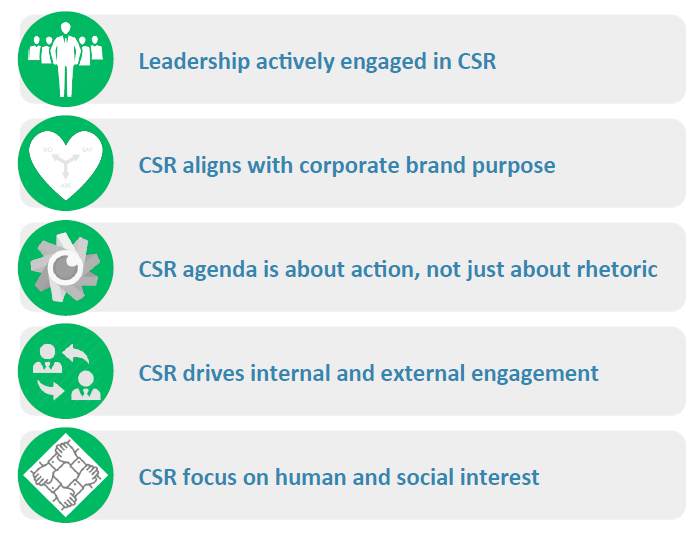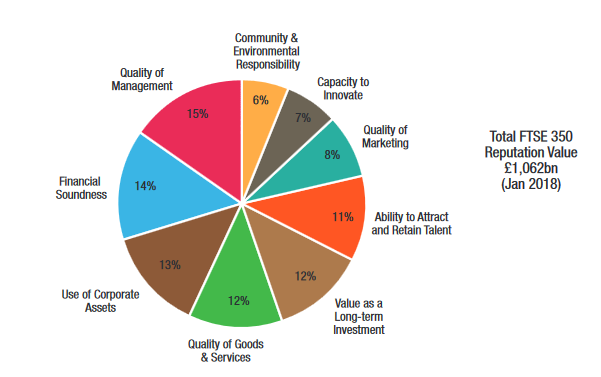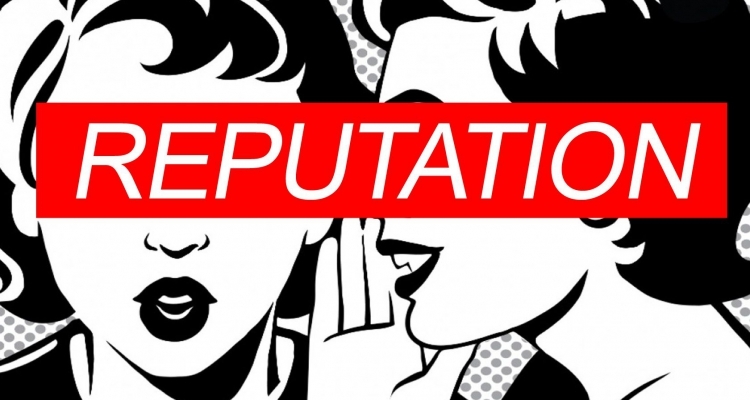The Reputation Economy states that much more important than WHAT we sell is WHO we are. Why does a consumer with many options prefer one brand over the other? Is it only quality and price that decides about the purchase or sympathy for some product?
Definitely not. Company ethics, behaviour towards its employees or contribution to the local community play an increasingly important role in customer product selection. The New York Reputation Institute found that we choose 60% of products based on brand awareness and reputation. It also says that good reputation leads to an increase in recommendation by 6,5%, 5% higher sales and twice better performance compared to the overall market.
An important part of corporate reputation is Corporate Social Responsibility (CSR) and Sustainability. Thanks to them, company reputation can be largely influenced and bring a number of financial benefits. Here are some examples:
- Impact on customer preferences – the occasional cost from satisfied customers (e.g. higher price for a recyclable product) proves that fully satisfied customers contribute 2.6 times more than “somewhat” satisfied customers.
- Acquisition of new customer segment and retention of existing customers – the cost of acquiring a new customer is six or seven times higher that the “cost” of retaining an existing and satisfied customer.
- Support for the organization in times of crisis or controversy due to long-term focus on sustainable business.
Continuous building of company value on the market.
Being attractive for interesting applicants – 93% of those who are currently employed would leave their job to work in a company with a good name. In addition, 76% of people would probably not accept a job, which would be offered from a company with bad reputation.
Better PR and marketing – companies with 3 or more stars on Google will receive 87% of clicks.
Negative references can ruin the company
Up to 92% of customers read online references about companies, which may affect their decision to purchase a product. 67% of customers don’t buy a product from a particular company, which has 1 or more negative references (of course it depends on the number of the references). Therefore, it is necessary to take care of all stakeholders (interested people/companies that influence the company or are influenced by the company) very actively within a well-defined CSR strategy. The annual cost of dissatisfied customers can be more than $ 537 billion.
Examples of companies with strong CSR that is reflected in their reputation
CSR constantly continues to grow as a key driver of building company reputation. We present ten companies that had the strongest reputation associated with CSR in 2017. The data comes from the Reputation Institute.

Reasons for success in CSR

Leadership actively engaged in CSR.

CSR agenda is about action, not only rhetoric.

CSR drives internal and external engagement.

CSR focuses on human and social interest.

Positive reputation thanks to CSR means higher profits
It is clear that companies which are more committed to their reputation have better economic results. This annual report from Reputation Dividend shows an obvious link between corporate reputation and company name. The table below shows data from 2017.

Unilever, the global leader in sustainability, ranks first. Until today the company says e.g.:
- they have contributed to improving health and hygiene for more than 600 million people,
- in the environmental area, they have been constantly striving to reduce the amount of greenhouse gases, water and waste associated with the production of their products,
- they are active through their initiatives such as programs helping small farmers or retailers to improve their living conditions,
- they live by their slogan “make sustainable living commonplace”.
Another example is Shell, which is actively engaged in CSR. The company says that safety, environment, and community involvement are very important for them. They invest in advanced technologies to reduce CO2 emissions. People from the company believe that businesses, governments and society have to work together because together they can create a more sustainable energy future. This approach has a positive impact on Shell’s reputation.
(CSR) values that influence company reputation
Main values that influence corporate reputation are quality of management, financial health, and quality of products and services. These areas form the core of a well-established CSR strategy and sustainability, including other areas such as communities, environment, innovations and the ability to gain new talented people.

In conclusion
A well-defined corporate CSR strategy plays a crucial role in building positive reputation. This consequently brings long-term prosperity of the business and higher profits. For more information about this area, do not hesitate to contact us.
Sources:
The Importance of Business Reputation: https://www.businessinfocusmagazine.com/2012/10/the-importance-of-business-reputation/
Why Your Company’s Online Reputation Is Important: https://www.webfx.com/blog/marketing/companys-online-reputation-important/
The cost of unhappy costumers: http://blog.grade.us/the-cost-of-unhappy-customers/#more-228
The 2018 UK Reputation Dividend Report: http://reputationdividend.com/files/6215/1939/6597/UK_2018_report_Final.pdf
Reputation Institute: https://www.reputationinstitute.com/research/2017-global-csr-reptrak
How Much Can a Bad Review Hurt Your Business?: https://brightpast.com/how-much-can-a-bad-review-hurt-your-business


